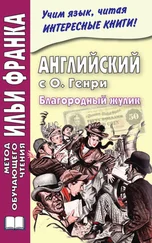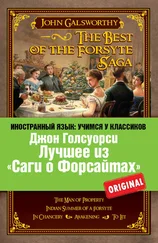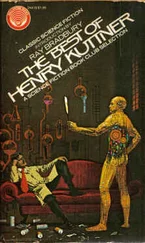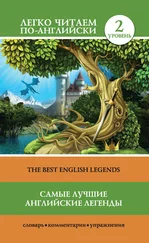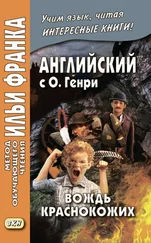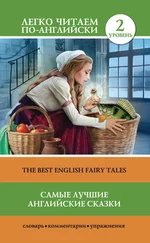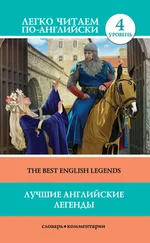oleograph – a colour lithograph, a most popular method of colour reproduction in the second half of the 19th and the beginning of the 20th centuries
caliph – a ruler of a Muslim country, usually powerful and rich
Cupid – in Roman mythology, the god of love
fauns – in Roman mythology, half-men and half-goats, gods of the woods and the fields
hamadryads – nymphs living inside trees and dying with them
Philomel – the brand name of a hand organ, the musical instrument generating sounds
acres – acre is a square measure equal to 4050 square metres
Croesus (6th century BC) – the last king of Lydia, an ancient country on the Aegean Sea, known for his great wealth
Eden – in the Old Testament, the biblical paradise on the Earth where the first man and woman, Adam and Eve, lived
incog. = incognito – with concealed identity, under an assumed name
bunco steerer – here: swindler
Fortunatus – Venantius Fortunatus (540–600), a French bishop and poet, the author of Latin poems and hymns
horologue = chronograph, a device for measuring time
Rubberneck Auto – a tour bus for sightseers; rubberneck means to drive slowly to be able to see the places of interest.
Russell Sage (1816–1906) – an American financier who took part in organizing the US railroad and telegraph
the Rialto – Rialto Bridge over the Grand Canal in Venice, built in the 16th century, with a broad deck carrying two arcades of shops
the Harlem River – a river in Harlem, the district in central New York City, with no fixed boundaries
H. P. = horse power
Epictetian philosophy – in Greek and Roman history, the philosophy of stoicism characterized by tranquility of mind and the mode of life based on certain moral principles
cardiaphone – the device for listening to the work of a human heart and other most subtle sounds
Bluebeard – a fictional character in European, Eastern and African folklore and Charles Perrault’s tale; he killed everybody who risked to enter the locked and forbidden room.
mfg. = manufacturing
wot = know ( obsolete )
anthropology – the science which studies humanity in different aspects: biological, historical, cultural, evolutional, etc.
harlequin – one of the main characters in the Italian comedy of arts, a witty manservant
sacque = sack – here: a wide coat
Patrolman – a patrol policeman
a plain clothes man – an agent or detective (not wearing uniform)
hall bedroom – a one-room flat
the Flatrion Building – a famous skyscraper in Broadway, built in 1902
the great cathedral in Milan – Cathedral of Milan, a fine example of Gothic architecture, one of the largest churches in Europe, built in the 14th–15th centuries
regalia – emblems or decorations used at some occasions
début – the first appearance in society
bon vivants – people leading a merry life and enjoying it
habitués – usual customers or visitors
tulle – a party dress made of tulle, an extremely fine and soft fabric
vespertine – adj evening
cheviot – woolen fabric, slightly rough and heavy
beau monde – the best society, the elite
cotillions – cotillion is the 18th–19th century French court dance
wigwams – wigwam is a North American Indian dwelling consisting of a dome-shaped framework covered with mats
the tribe of the Manhattans – a North American Indian tribe that used to inhabit the island until 1626 when Manhattan was sold to the Dutch
the highway of Mammon and the auxiliary gods – here: the place where the rich live; Mammon is an ancient god of wealth.
to do de Johny act – here: to chase after a woman, to misbehave
diaphanous = semitransparent, translucent
troubadour – a lyric poet in Italy, France and Spain in the 11th–13th centuries
conservatory – a hot-house with glass roof and walls to protect plants from cold
impresario – a manager or sponsor of an actor, singer, etc. or an entertainment
calico – cotton fabric with plain designs, originated in Calicut, India, in the 11th century
ragtime – a musical style predominant in American popular music in the late 19th – early 20th century
lares et penates = native home ( French )
polychromatic = multi-coloured
Huguenot – the French Protestant in the 16th–17th centuries
Psyche = Soul ( Greek ) – the personification of a human soul; in Greco-Roman mythology, a beautiful princess who aroused Cupid’s love.
Amazonian – from Amazon , in Greek mythology, a representative of the race of woman warriors who lived in the Black Sea area
cryptograph – a specialist in cryptography, the practice of using cipher with a secret code in messages
the worm dieth seldom – a part of the phrase from the Bible that describes the blazing inferno
rayjict = reject
the blowing of Gabriel’s dinner horn – Archangel Gabriel, the messenger of the God, according to the Old Testament texts blew a trumpet (horn)
‘Parsifal’ – opera by Richard Wagner, written in 1882 and based on the early 13th century epic poem of the same name, written by Wolfram von Eschenbach
Grecian = Greek
Eve-sister – any woman; in the Old Testament, Eve was the first woman on the Earth.
Sabine – a member of the Sabini, an ancient Italian tribe
Venus – in Roman mythology, the goddess of love, beauty, spring and gardens
Circe – 1) in Greek mythology, a sorceress, the daughter of the sun god and an ocean nymph; 2) an insidious seducer.
Читать дальше
Конец ознакомительного отрывка
Купить книгу
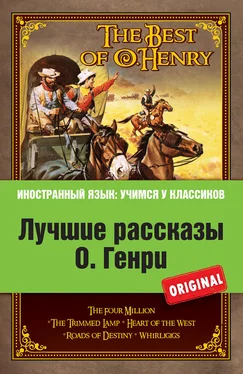
![Автор неизвестен Эпосы, мифы, легенды и сказания - Самые лучшие английские легенды [The Best English Legends]](/books/34729/avtor-neizvesten-eposy-mify-legendy-i-skazaniya-s-thumb.webp)


